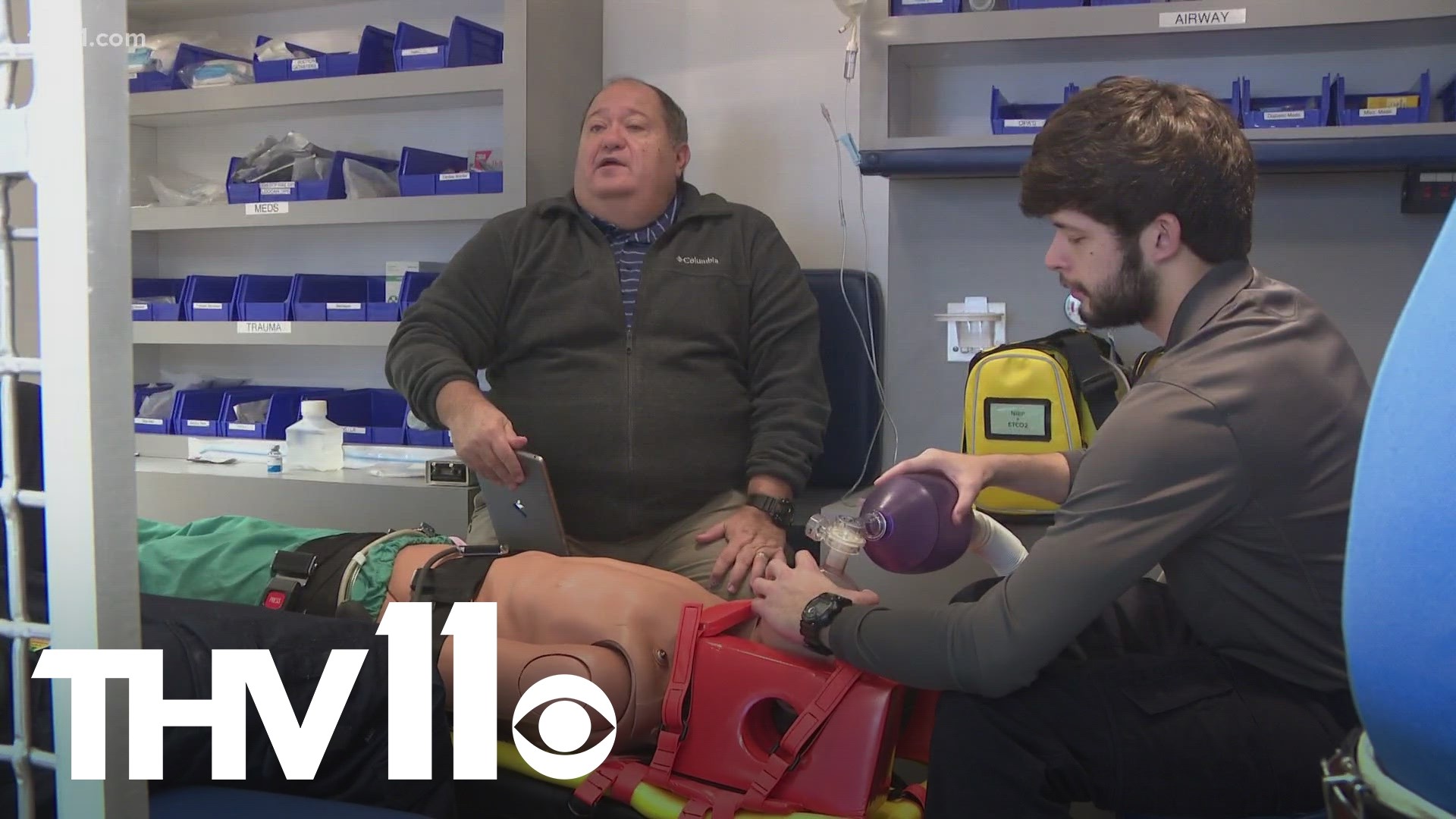LITTLE ROCK, Ark. — The pandemic brought on a lot of new challenges, many of which are still present today.
Some have been easy to cope with, while others not so much. The medical field is still experiencing the impact to its infrastructure.
"For folks that really want an outside-the-box experience, that's kind of who we gravitate towards within our field," Harold Shray said.
Shray is the program director for the Emergency Medical Services Program at Pulaski Technical College. He'll be the first to tell you that he's proud of the work his students do.
While he's prideful, there's also a concern.
"I don't know of any service in the state that is up to full capacity on employment," Shray said.
While we may have put the bulk of the pandemic in the rearview mirror, the medical field, especially paramedics and EMTs, is still dealing with complications. Right now, there are more jobs than applicants. However, that's not the only issue.
According to the Arkansas Ambulance Association, the number of people training to fill those jobs has seen a decline. Shray said part of the reason for that is simple— the job isn't easy.
"Unfortunately, COVID has kinda taken a big hit with a lot of folks being weary of entering the medical field," Shray said. "They realize that repeated exposure to things puts them at additional risk."
And Shray isn't the only one. Those who worked closely with COVID-19 patients also share the same thought.
"I'm taking care of this patient in this tight, confined spot, I'm gonna get off duty and I'm gonna go home to my family who has been sheltering in place so they're not exposed," Executive Director at MEMS Greg Thompson said. "Well, did I just cause that to happen?"
Thompson has seen those staffing issues firsthand. He says the pandemic caused many to reconsider their careers, especially in the medical field.
"You think about that time, we're asking people to come on, 'Hey, join us in EMS and go into strangers' homes and deal with COVID in the middle of the pandemic,'" Thompson said. "We did see a decline during that time of applicants for this work."
Recruiting and retaining those front-line workers took some adjustment. Raises, work-life balances and better shift times were just some of the new policies MEMS implemented.
But they weren't your typical benefits either. Thompson said they also put a focus on their team members.
"We have been focusing for the past couple of years on mental health," Thompson said. "We have doubled down on that, we actually have a therapist on site now... we've doubled down on that area."
Thompson said he's starting to see an increase in applicants, but understands the shortage won't end in the snap of a finger. To speed that up, some schools have even shortened the amount of time it takes to become a paramedic and EMT.
"I wish there was a hard, quick answer for exactly when it's going to end," Shray said. "Academic institutions around the state have kind of revamped, and what may have been 17 months previously of education, have figured out ways to get it more condensed into 12-month formats."
But they still don't have the students they need to fill those seats. To get out of this situation, Shray said they need that to happen.
"If we had double the number of students, we can absolutely accommodate that," Shray said. "We can absolutely push them into a meaningful career."
For information on the program at Pulaski Tech, send an email EMSprograms@uaptc.edu.

